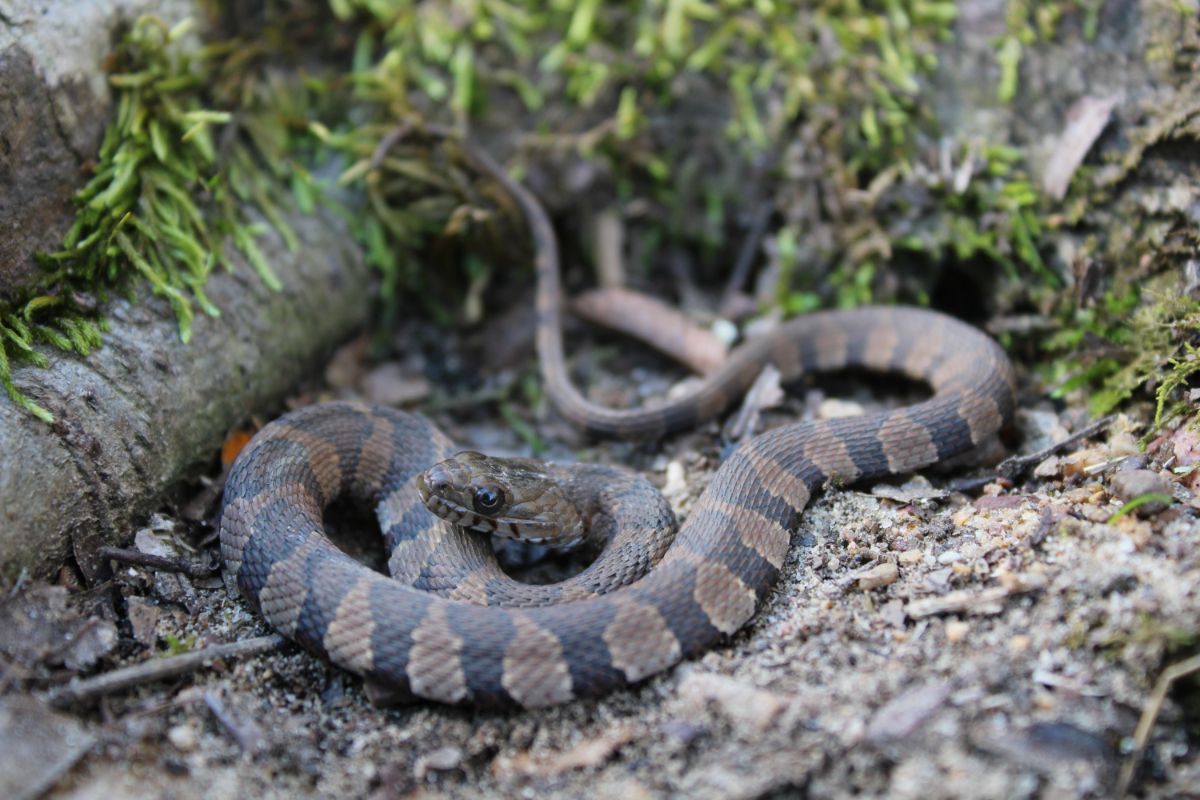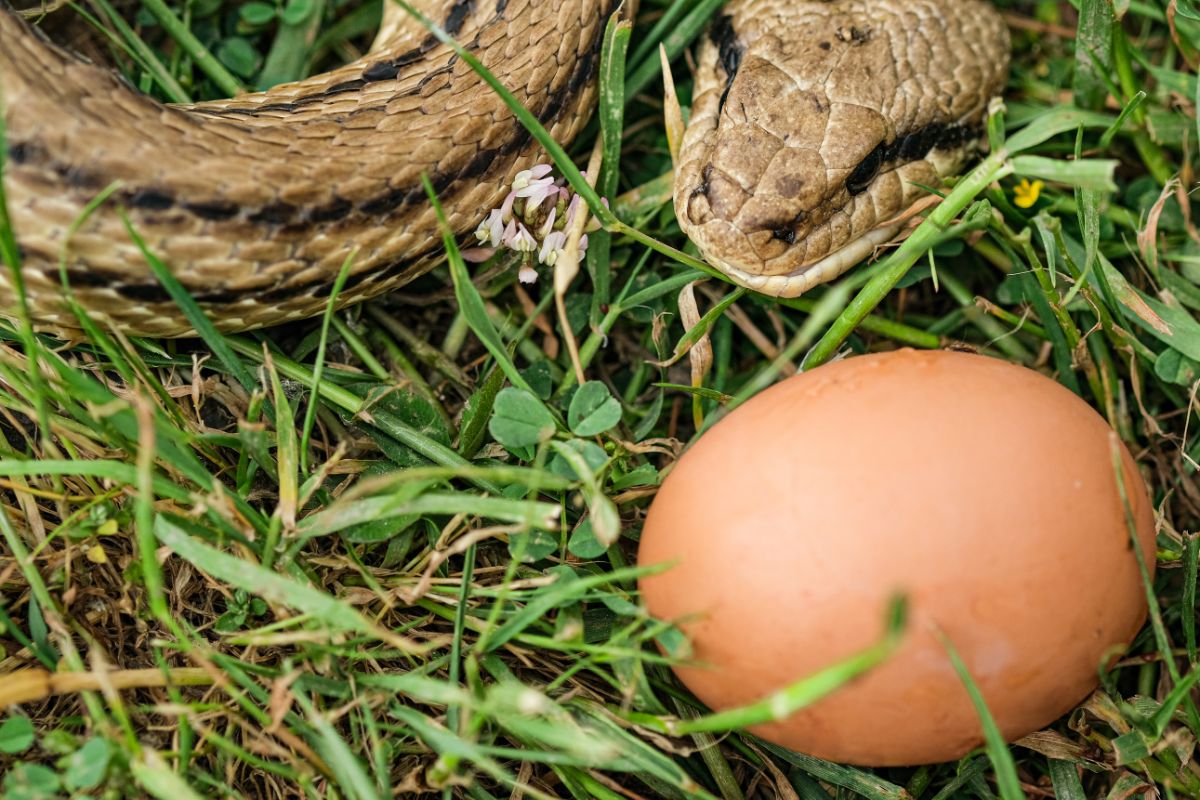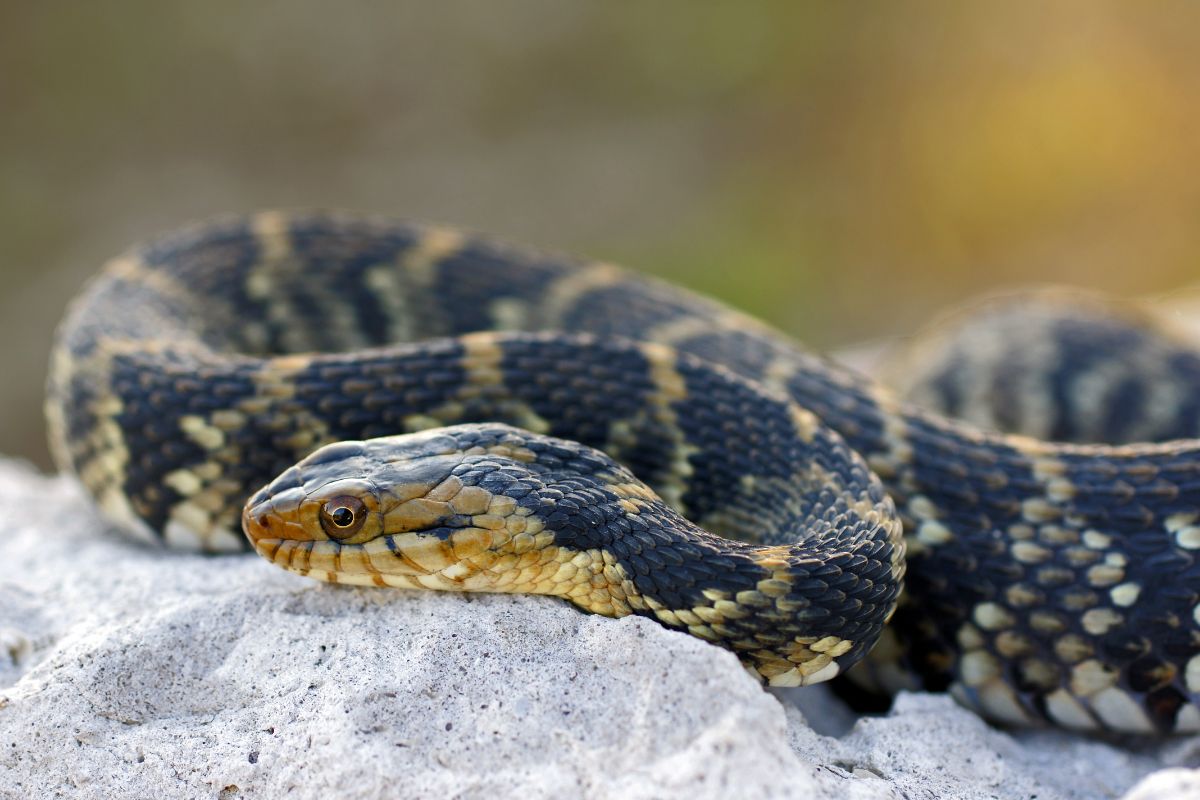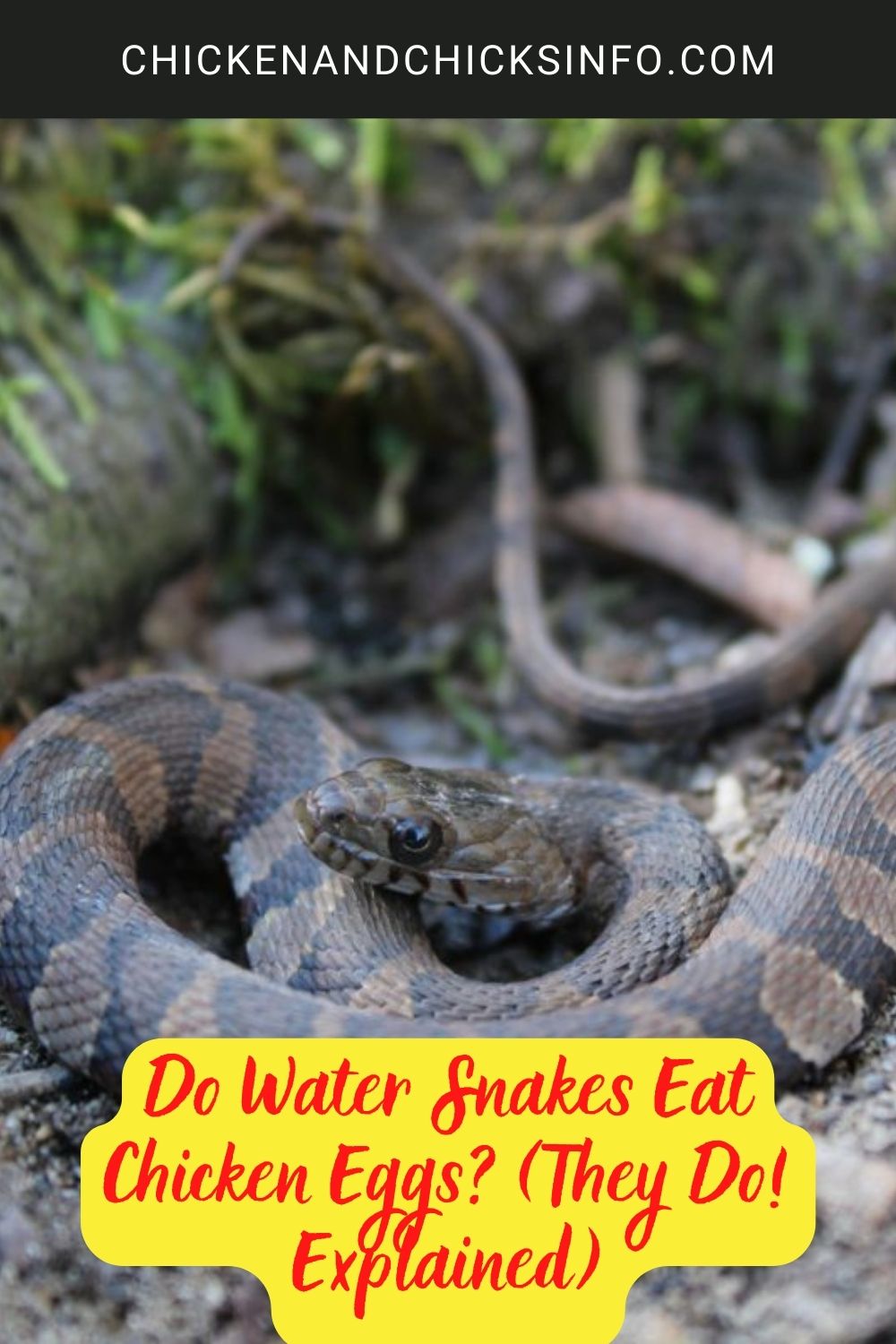
Water snakes will eat chicken eggs, yes. Water snakes typically feed in or around water, but a hungry snake will venture further afield to find food - and this means into a coop.
Water snakes are non-venomous and primarily eat fish, reptiles, insects, and small animals. They are opportunistic feeders and will eat eggs if they come across any.
If you know - or even suspect - there are water snakes in your area and you’re raising backyard chickens, you need to ensure your chicken’s coop and run are snake-proof.
Jump to:
Do Water Snakes Eat Chicken Eggs?
Water snakes are known to eat chicken eggs, yes.
They don’t pose a serious threat to chickens as they’re non-venomous, but they can still wreak havoc in a coop scaring your chickens and stealing eggs.
There are several species and subspecies of water snakes across North America, some of the most common species are:
- Northern water snake
- Banded (or Southern) water snake
- Yellow-bellied water snake
- Red-bellied water snake
- Brown water snake
- Lake Erie water snake
The most common is the Northern water snake. If you’ve never seen one, they are heavy, thick-bodied, tan to gray colored snakes with lighter markings.
It’s hard to distinguish the Northern water snake from some other species like Cottonmouths, and the Northern Copperheads at times.
The main difference, however, is that those two are venomous, and water snakes are not. Either way, you don’t want to get close enough to any of these snakes to find out!
Do Chicken Eggs Attract Snakes?

Because a lot of backyard chicken owners notice snakes taking their eggs, they assume that eggs being left out are attracting the snakes.
I can’t find any evidence to back up the assumption that eggs alone attract snakes though.
Snakes have an excellent sense of smell, and we know their noses lead them to food sources.
Unless eggs are breaking open, it’s not likely to be eggs that are attracting snakes. It’s more likely the general smell of a coop and chickens that attract them.
Of course, it helps to collect eggs as soon as possible and, but this alone will not stop snakes searching the nesting boxes for their next meal.
Keep in mind that snakes are opportunistic scavengers. If they can get into a coop or a chicken run, they’re going to search for something to eat.
If they can’t find an egg, a lot of snakes will kill and eat - or attempt to eat - a chicken.
The bottom line is; you need to snake-proof your coop and make sure no snakes, no matter how small, can get in.
What Kind of Snake Eats Chicken Eggs?
Most snakes will eat eggs if they’re able to fit them into their mouths. I see some people saying that rattlesnakes and some other venomous snakes will not eat eggs.
Most venomous snakes prefer to eat live prey like rodents and small mammals, but they’re capable of eating eggs.
For reference, some of the species of snakes commonly found in North America that are capable of eating chicken eggs include:
- Copperheads
- Water snakes (as covered in this article)
- Milk snakes
- Egg-eating snakes
- Pythons
- Cottonmouths
- Various types of Rattlesnake
- King snakes
- Chicken snakes
- To name just a few
Something to keep in mind is that just because a snake doesn’t look like its mouth is large enough to eat an egg, it doesn’t mean it’s not able to.
Snakes are able to unhinge their jaws to widen their mouths. Most snakes can eat something around three times the size of their heads by doing this.
So, next time you see a small snake slithering around your yard, don’t let it fool you - your chicken’s eggs are not safe!
Do Chickens Scare Away Snakes?

If you’re wondering if your chickens will be able to protect their eggs and scare snakes away, the answer depends on the size and type of the snake and your breed of chicken.
Some chickens are better than others when it comes to dealing with predators like snakes.
Ideally, it’s not something you ever want to wait and find out though. Snakes are predators, and if they’re hungry they can be very dangerous.
A lot of snakes will not only take eggs, but they will also kill chickens. It takes a big snake to eat a whole chicken, but they can cause some chaos in a coop in the process.
It’s worth taking a look at your coop and your chickens’ run for any holes or possible entry points, no matter how small.
Your chooks may be able to defend themselves against a small milk snake, but it’s still going to be a stressful encounter that can cause some distress.
The best defense is to make sure a sneaky snake cannot find a way into their coop, especially at night.
The last thing you want is to enter the coop in the morning to find that a snake has been loose in there for several hours causing havoc.
In Summary
The good news is that Water Snakes are non-venomous and do not pose a serious threat to you or your chickens.
The bad news is that they will eat chicken eggs given the chance. Your best line of defense is to be aware of the species of snakes in your area and to fortify your coop.
Resources
Northern Watersnake Fact Sheet - Portal.ct.gov





